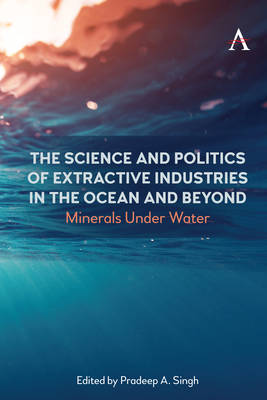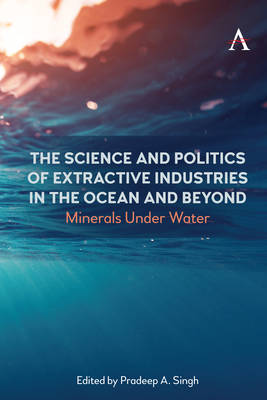
- Retrait gratuit dans votre magasin Club
- 7.000.000 titres dans notre catalogue
- Payer en toute sécurité
- Toujours un magasin près de chez vous
- Retrait gratuit dans votre magasin Club
- 7.000.0000 titres dans notre catalogue
- Payer en toute sécurité
- Toujours un magasin près de chez vous
The Science and Politics of Extractive Industries in the Ocean and Beyond
Minerals Under Water
134,45 €
+ 268 points
Description
This edited volume is possibly the first of its kind to synthesize the most current knowledge on the topic of underwater mining across natural and social science disciplines. Even within the social sciences, contributions vary across the fields of law, politics, governance, and human geography. Two distinctive features of this book are that it takes a broader approach to minerals (e.g., includes a chapter on sand and gravel as well as salt) and it includes underwater mining in other bodies of water (e.g., rivers and lakes). The book is timely as mining under water in both marine and freshwater systems is gaining traction worldwide, while the environmental and social impact of extraction activities in aquatic environments is being widely debated. The first part of the volume includes contributions on the theme "Science, Technology, Environment, and Society." Chapters include environmental concerns associated with sand and gravel mining in riverbeds, technologies for exploration of deep seabed minerals and monitoring, the polarization of science and the construction of engagement, and the interface between science and academia in the underwater mining discourse. The second part of the volume includes contributions on the theme "Law, Politics, and Governance." Chapters include the geopolitics of seabed mining, underwater mining in the context of sustainable development, the regime for mining on the continental shelf, and the governance framework for industry. The third part of the volume includes contributions on several specific case studies. This encompasses mining interests in the Okinawa Trough, the Dead Sea, and the Mascarene Plateau. This volume aims to provide key insights into the ongoing debate surrounding mining activities in aquatic environments.
Spécifications
Parties prenantes
- Editeur:
Contenu
- Nombre de pages :
- 250
- Langue:
- Anglais
- Collection :
- Tome:
- n° 1
Caractéristiques
- EAN:
- 9781839984419
- Date de parution :
- 31-12-25
- Format:
- Livre relié
- Format numérique:
- Genaaid
- Dimensions :
- 152 mm x 229 mm
- Poids :
- 453 g

Les avis
Nous publions uniquement les avis qui respectent les conditions requises. Consultez nos conditions pour les avis.





